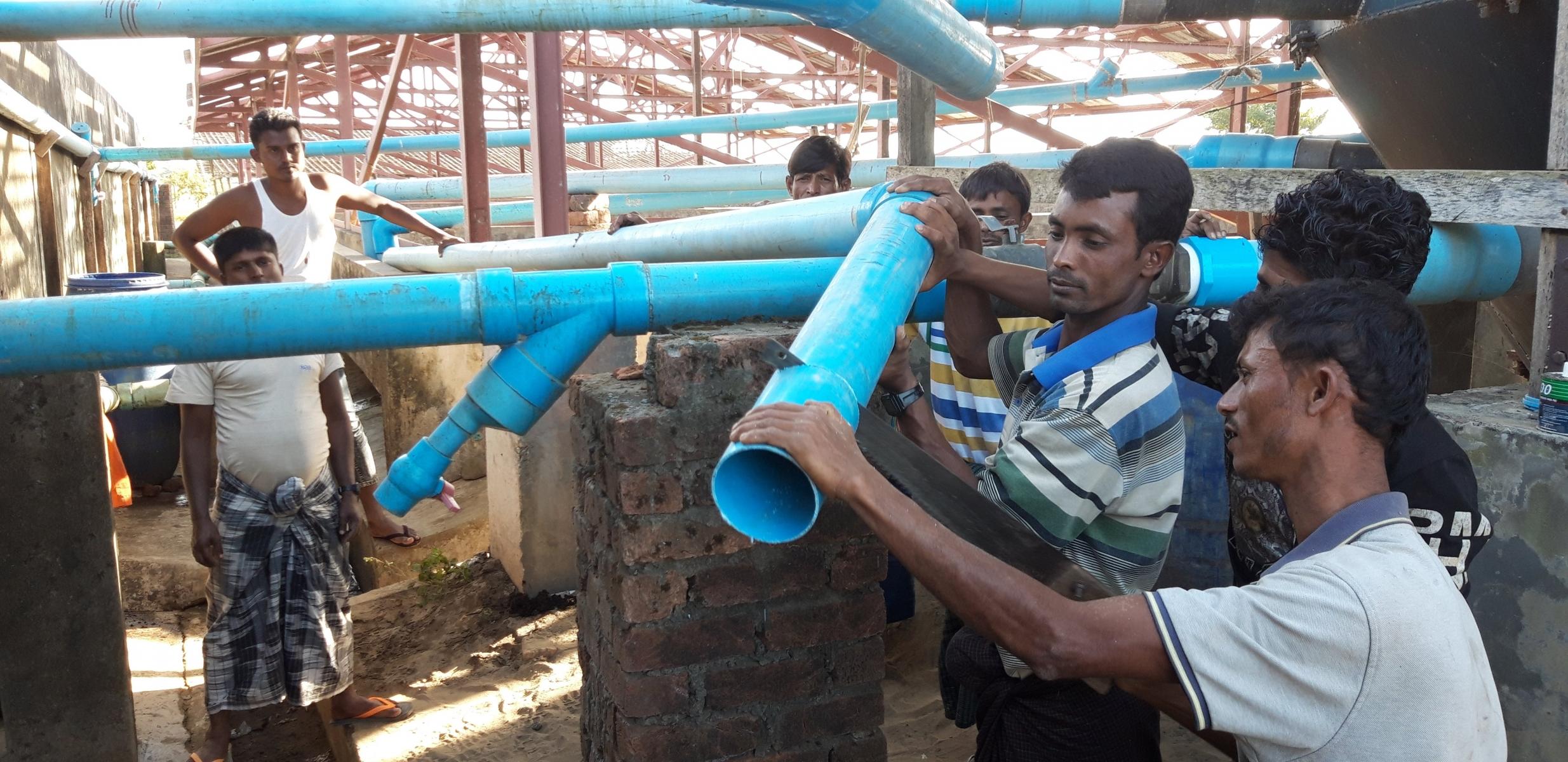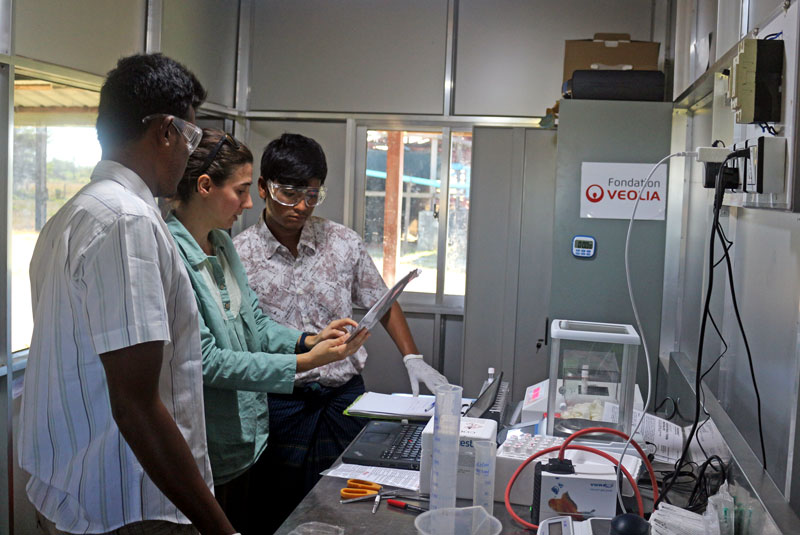
In Sittwe, in the extreme south-west of the Republic of the Union of Myanmar (formerly Burma), bloody confrontations forced the Rohingyas to retreat into refugee camps. These displaced populations (approximately 95 000 people) survive on the periphery of this Arakan port on the Bangladesh border. Their movement outside the villages and camps open to them is now impossible.
The NGO Solidarités International, a Veolia Foundation partner, has been working to improve the situation of these refugees for several years. In particular, it built a wastewater treatment plant in the area. Extracting and centralising the sludge from the 4 000 public latrines in the camps is a sanitary necessity to prevent the sewage seeping into the ground and ground water, which is particularly close to the surface in the rainy season.

Two Veoliaforce experts left for the site in late 2018 to optimise WWTP operation. For three weeks, one project manager at the Foundation and one Veoliaforce volunteer from VIGS (Veolia Industries Global Solution) ran an analysis laboratory to optimise the plant's management and improve its operation. The two engineers also trained local teams to allow them to continue using the analysis laboratory once they left. This was an essential condition for the sustainability of the facilities.

